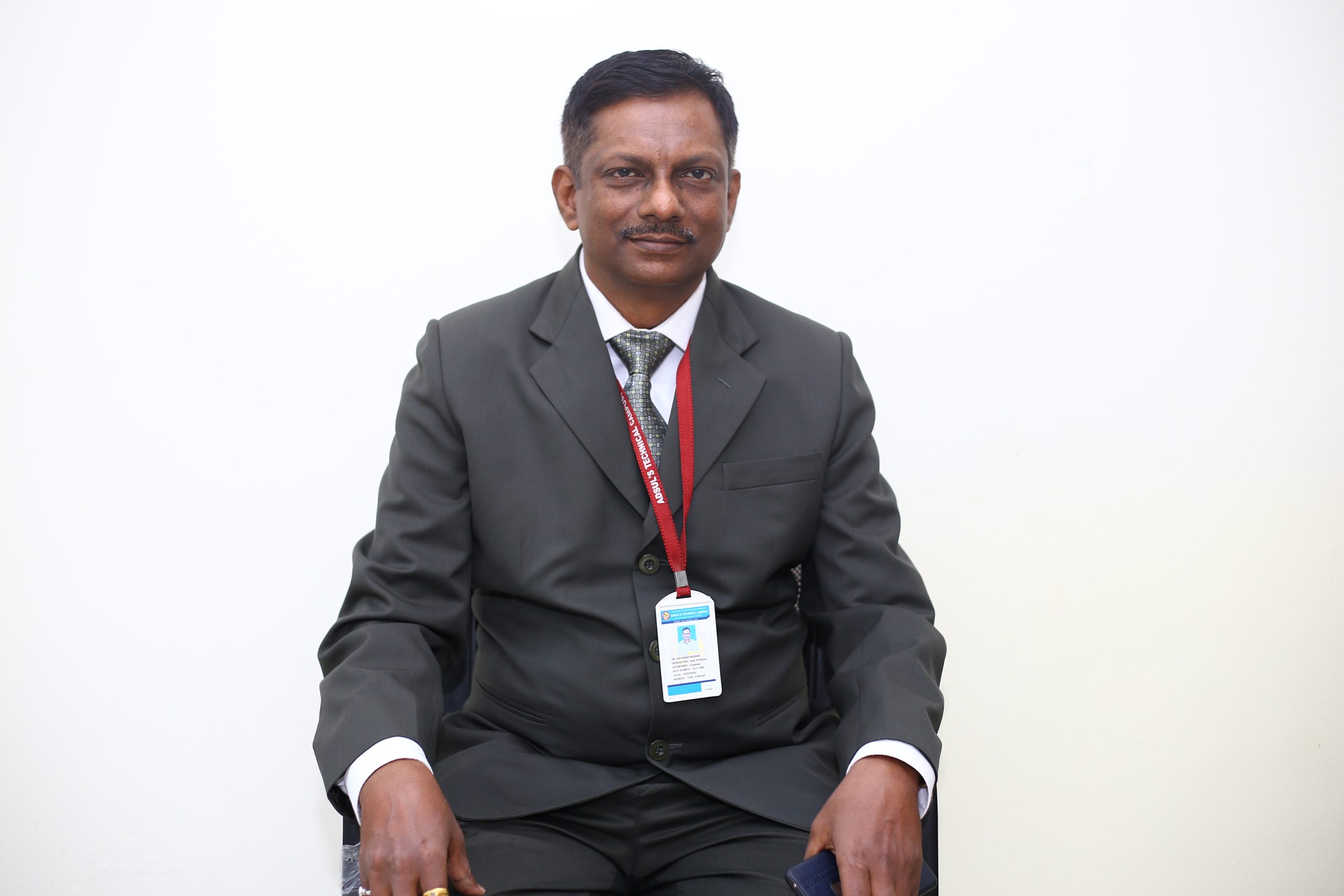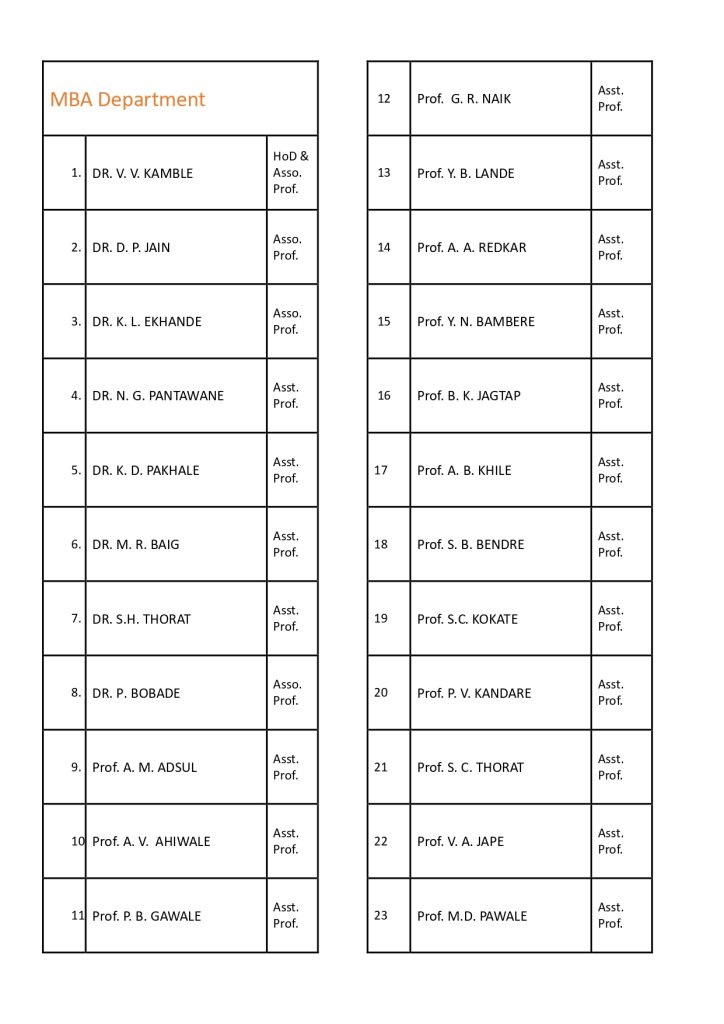PO-1 Engineering knowledge: Apply the knowledge of mathematics, science, engineering fundamentals, and an engineering specialization to the solution of complex engineering Programs.
PO-2 Problem analysis: Identify, formulate, review research literature, and analyze complex engineering problems reaching substantiated conclusions using first principles of mathematics, natural sciences, and engineering sciences.
PO-3 Design/development of solutions: Design solutions for complex engineering problems and design system components or processes that meet the specified needs with appropriate consideration for the public health and safety, and the cultural, societal, and environmental considerations.
PO-4 Conduct investigations of complex problems: Use research-based knowledge and research methods including design of experiments, analysis and
interpretation of data, and synthesis of the information to provide valid conclusions.
PO-5 Modern tool usage: Create, select, and apply appropriate techniques, resources, and modern engineering and IT tools including prediction and modelling to complex engineering activities with an understanding of the limitations.
PO-6 The engineer and society: Apply reasoning informed by the contextual knowledge to assess societal, health, safety, legal and cultural issues and the consequent responsibilities relevant to the professional engineering practice.
PO-7 Environment and sustainability: Understand the impact of the professional engineering solutions in societal and environmental contexts, and demonstrate the knowledge of, and need for sustainable development.
PO-8 Ethics: Apply ethical principles and commit to professional ethics and responsibilities and norms of the engineering practice.
PO-9 Individual and team work: Function effectively as an individual, and as a member or leader in diverse teams, and in multidisciplinary settings.
PO-10 Communication: Communicate effectively on complex engineering activities with the engineering community and with society at large, such as, being able to comprehend and write effective reports and design documentation, make effective presentations, and give and receive clear instructions.
PO-11 Project management and finance: Demonstrate knowledge and understanding of the engineering and management principles and apply these to one’s own work, as a member and leader in a team, to manage projects and in multidisciplinary environments.
PO-12 Life-long learning: Recognize the need for, and have the preparation and ability to engage in independent and life-long learning in the broadest context of technological change.


Sakeshwar Gramin Vikas Seva Sanstha’s
ADSUL’S TECHNICAL CAMPUS
Approved by AICTE New Delhi| Recognized By Government of Maharashtra DTE and Affiliated to SPPU, Pune
Accredited by NAAC with B++, ISO 9001:2015 Certified


Home » MBA
OUR VISION
“To impart value-based education by keeping a strong focus on social commitment, ethical integrity, and respect for national interest among the student fraternity. ”
OUR MISSION
M1: To impart quality education and build a strong cadre of professional managers to participate in nation building.
M2: To impart professional management skills by participating in seminars, conferences, regular formal training in group discussions, enhancing soft skills, participative skills and team work etc.
M3: To emphasize on various national programs viz. make in India, Startup India, Stand-up India, Digital India, Skill India, working of Mudra Banks and other similar program/schemes offered by Government of India in the economic sphere of activities.
M4: To emphasize on promotion of marketing strategies, brand management, advertising and sales policies, customer relationship, etc.

DR.D.P. JAIN
The MBA department offers a broad core curriculum, as well as a constant focus on creativity and entrepreneurship to distinguish our students in a competitive market. Specialization offered: 1. Marketing Management (MKT). 2. Financial Management (FIN). 3. Human Resources Management (HR). 4. Operations & Supply Chain Management (OSCM). 5. Business Analytics (BA) We continue to play a leading role in our discipline which leads us towards creating innovative and effective professional graduate community which would vivacious and provide continuous learning. Our focus is to continuously increase the impact of corporate connect and alumni interaction for sharing their corporate experience with the students and bring industry to the classroom. I am extremely happy to be associated with this department. I thank our management, researchers, teachers, alumni and students for their continuous support and cooperation. I welcome the students and wish them all the best for their future.
Program Specific Outcomes (PSOs)
PSO-01: Understand, plan, analyse, design and execution of buildings and infrastructures such as residential, public, industrial and irrigation structures, transportation facilities, powerhouses respectively.
PSO-02: Make use of management tools, optimization and leadership techniques to complete the
civil engineering projects within stipulated time and funds.
PSO-03: Contribute to the society for sustainable development through environmental awareness
and upholding professional ethics.

Academic Monitoring Committee (AMC)
Following staff members are hereby appointed and entrusted to work for Academic Monitoring Committee (AMC) with immediate effect till the academic year 2022-23.
It is expected that each member shows the great degree of leadership, team management, initiative and creativity, with highest degree of priority to this work.
Committee Members
| Sr.No | Committee Member Name | Current Designation | Role |
|---|---|---|---|
| 1 | Dr. H B Jadhav | Asso. Prof. & HOD (Comp) | Chairperson |
| 2 | Prof. J. R. Mahajan | Asst. Professor | Member |
| 3 | Prof. U. S. Nagargoje | Asst. Professor | Member |
| 4 | Prof. D. P. Pawar | Asst. Professor | Member |
| 5 | Prof. S. C. Puranik | Asst. Professor | Member |
| 6 | Prof. V. M. Joshi | Asst. Professor | Member |
| 7 | Prof. A. V. Ahiwale | Asst. Professor | Member |
| 8 | Prof. S. J. Bhandhari | Asst. Professor | Member |